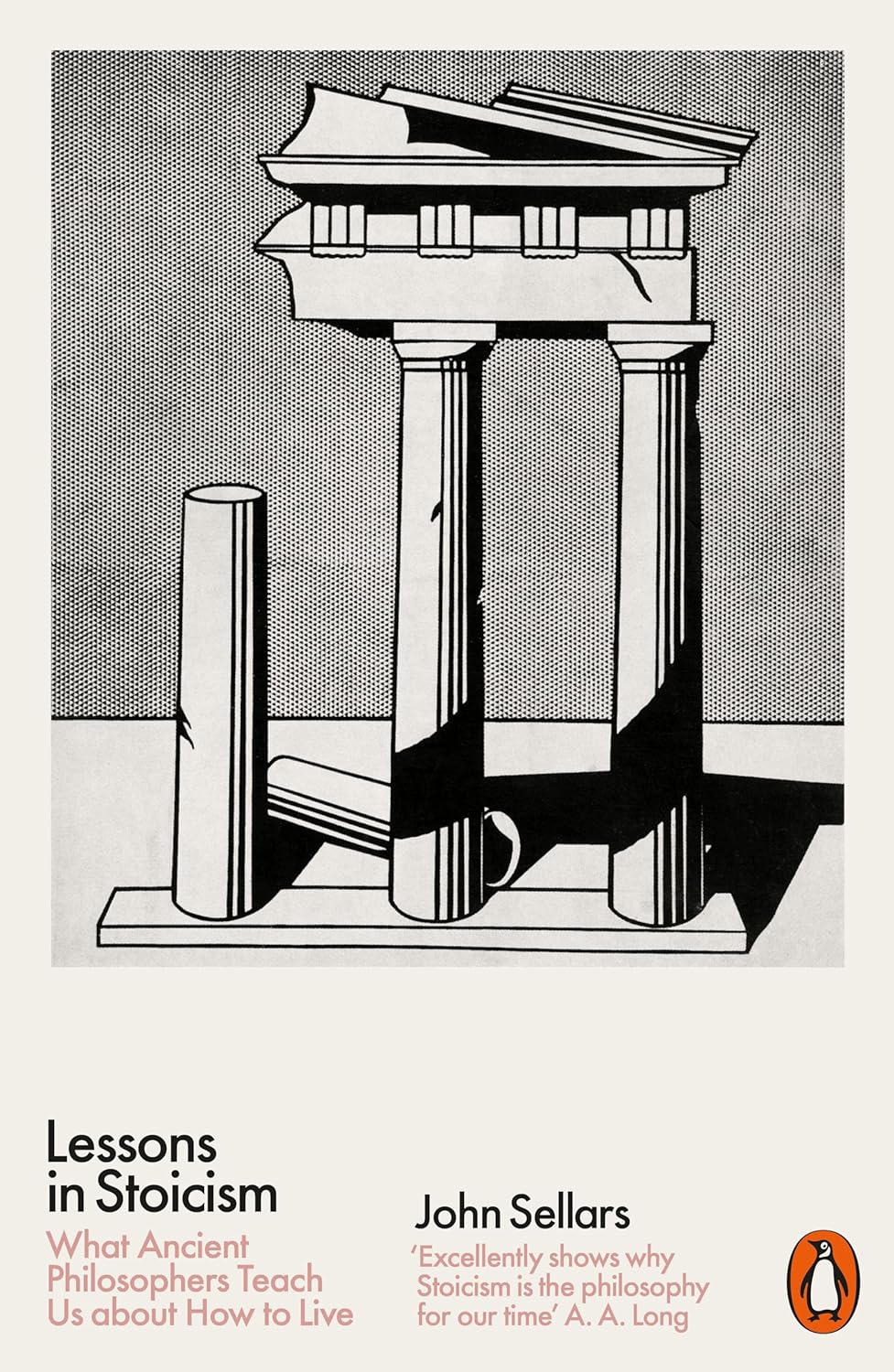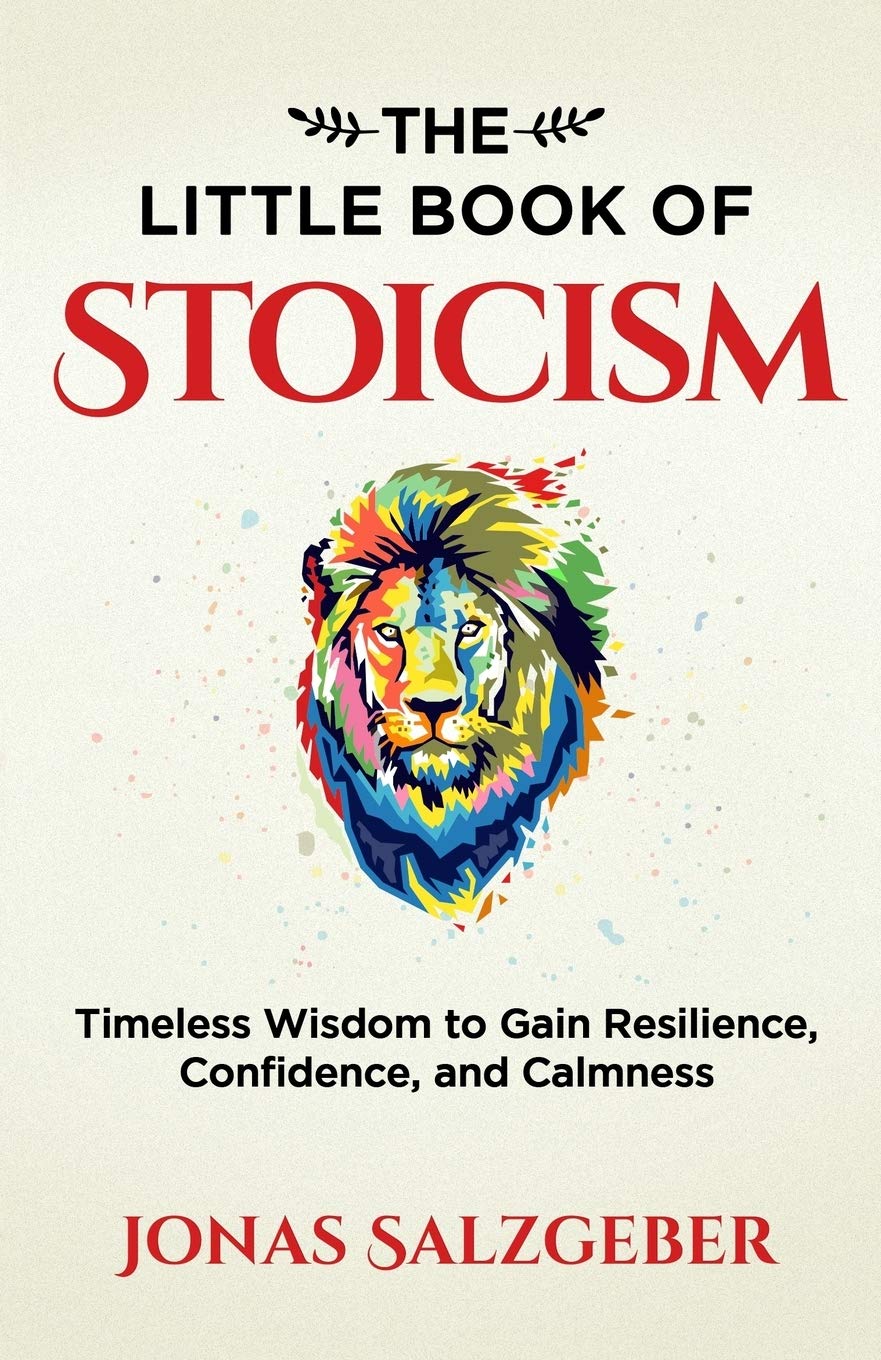 Life
Life
What is Stoicism? (Complete Guide)
In this post, we talk about Stoicism as an ideology, its most popular and crucial teachings, and how incorporating the same in your mindset can bring about a massive paradigm shift for you. Stoicism refers to a way of life that focuses on continual development of the self. It consists of several ideas and concepts that help its practitioners become better individuals equipped with a strong character and an ironclad will.
Stoicism seeks to provide a robust way of life, one that cannot be harmed or weakened by negative experiences and misfortunes. With this, you learn to stand tall and bold in the face of misery, and welcome challenges and difficulties with open arms. Stoicism, as an ideology, largely endorses the concept of becoming resistant to anything and everything that has the potential to hurt you mentally, physically, as well as emotionally.
Founded in the early 3rd century BC by Zeno of Citium, Stoicism is a school of Hellenistic philosophy whose teachings are majorly centered around the need to nurture unshakable virtues as part of one’s natural persona. Students of Stoicism are popularly known as Stoics, and seek to become indifferent to the alternating highs and lows of life. Here are some of the most important lessons of Stoicism that allow the latter to attain just that.
If you cannot control it, why worry?

This is the first important lesson of Stoicism. It is a fact that 90% of our everyday experiences occur without us having any sort of control over them. Only 10% of what we go through do we control, that too to a limited extent only. And yet almost all of us tend to worry and stress over things that do not go as planned, even though we completely understand that there’s nothing we could have done to change the course of events.
This is a strange ordeal that we all have to tackle quite frequently in our lives. One of the best ways to overcome this is to ask ourselves this: if I cannot control it, why worry? Understanding the logic behind this simple question can help us fight the urge to panic over silly obstacles. Further, we often tend to channel our anger towards those around us, and sometimes take it out on non-living entities even, although it does nothing to improve our difficult situation.
So it is crucial to understand that screaming and honking incessantly at the slow driver in front of you isn’t going to solve your family problems. Similarly, shouting at the waiter isn’t going to accelerate the cooking process, or kicking the chair and throwing your bag against the wall isn’t going to get you good marks in your exams, or criticizing and disrespecting your spouse over arbitrary issues isn’t going to improve your office situation, so on and so forth.
Louise Hay once observed: “The Universe has been taking care of us for years, why would it suddenly stop now?” The depth of this statement is immeasurable. Every now and then, we find ourselves to be distressed, puzzled, and frustrated over a fate we cannot alter. This leads us to feeling powerless. Instead, if we were to realize that there are a lot of things that can go wrong in this world which can effectively make the human species go extinct, but there resides a higher power that ensures our continued survival, we would immediately feel light like a feather, as though a heavy burden was lifted from our shoulders.
Our perception troubles us more than the actual experience

This is the second important lesson of Stoicism. We are all inclined towards assuming the worst in any given situation, and this one self-defeating habit is what eats us from the inside. Fear is a man’s greatest enemy. She who is afraid of death dies a hundred times in her life. The ghost underneath your bed is only as strong as your imagination. All these sayings indicate the importance of learning to reign in our negative thoughts before they become too aggressive to control.
Many a time it so happens that the anticipation of an undesirable outcome makes us anxious and restless to such a high degree that we lose sight of the road itself. We keep thinking about everything that can go wrong, all the while missing out on so many beautiful experiences, only to find that the end isn’t so bad after all. We spend years being afraid of what’s behind the door, when we could have turned the knob and found out the truth decades ago.
Why do we have to go to such extremes even though it’s not required? Why do we have to suffer through the pain of failure in our heads when we know we haven’t even taken the first step towards our goal? Why don’t we focus on fixing our thoughts instead of fixating on the problem? Do we really need to remain confined by the limitations of our own fears? Can we not break free from these shackles of negative thinking? These are questions that we need to ask ourselves and answer honestly if we truly wish to become the best version of ourselves. Stoicism is all about embracing our truth. And if that requires us to confront our demons head-on, then so be it.
Hardship is a necessary evil

This is the third important law of Stoicism. Hardship is an inevitable part and parcel of life. Sometimes it tends to get overwhelming and quite difficult to bear. But the truth is, hardships make us better individuals. Professional hardships turn us into well skilled craftsmen in our respective fields of work, whereas personal hardships improve us in terms of our values and other aspects of being.
In short, hardship is an essential part of growing up. It not only allows us to hone our strengths, but also helps us ascertain our weaknesses so that we can be better prepared the next time. However, not all of us view hardship as an opportunity to improve ourselves by getting to know us better. A lot of us fall into a state of self-pity and helplessness. We lose confidence in ourselves and even start blaming others for our failures.
It is important to understand that there exists a better approach to this. Instead of viewing hardship in a bad light, try focusing on what you can gain from the experience. Every obstacle that we overcome in life teaches us something valuable. We just need to identify what it is before we begin criticizing everyone and everything our gaze falls upon.
Once we become aware of the potential lesson that we’re going to learn from a particular hardship, the next step is to ensure that you do not forget about it till you reach the finish line. One easy trick to do this is to write it down on a paper and put it on a wall adjacent to your bed. This way you’ll automatically get to read it the moment you wake up in the morning as well as when you go to sleep at night. You could even create a post and set it as your smartphone’s wallpaper.
The idea is to keep reminding yourself that you’re the one in-charge here. You have chosen to tackle this challenge in a bid to improve and grow as an individual. The truth is, no one can ever live a completely silver life. Sooner or later, everyone has to face difficult times. Developing a strong mindset can help you conquer your deepest fears. Subjecting yourself to smaller hardships will aid you in preparing for the bigger ones. But if you give up in the very beginning, you will have lost a rare chance to become something more than your usual self.
Pessimism is a blessing in disguise

This is the fourth important lesson of Stoicism. Since childhood, we are forced to develop a positive outlook towards life. We are asked to refrain from uttering words that indicate negativity. We are told to focus on the good and stay optimistic no matter what. Ironically, almost all of us fail to develop such a mindset. In addition, more often than not, we are drawn magnetically towards negative thinking like pieces of iron. When that happens, we are again told to look on the bright side. And the cycle continues. Unfortunately, we never really learn to stay truly positive. Fortunately, this is completely alright.
If optimism hasn’t worked out for you, worry not. You aren’t the only one. For some odd reason, negativity attracts us humans like moths to a flame. The moment something goes wrong, we immediately tend to imagine the worst when we could’ve just as conveniently focused on the underlying positive. Why is that? Why is it so that all of us need to be taught to stay optimistic, or to nurture positive thoughts, or to look on the bright side? Perhaps, negative thoughts come to us more naturally than positive ones do. And it only makes sense that we learn to use our negative thoughts to our advantage.
“An optimist invented the plane. But it was a pessimist who invented the parachute.” Embracing our pessimism and using it to prepare beforehand for rainy days can prove to be extremely useful for us. Negative thoughts will populate our minds irrespective of whether we choose to fight them or not. But if we choose to entertain them instead, and use our imagination to predict everything that can go wrong in our ongoing endeavors, we’ll be able to plan ahead for any plausible misfortune.
Another way that pessimism can help us become better human beings is that it allows us to visualize the worst case scenario in any given situation. Comparing the latter with our current circumstance can instill feelings of thankfulness in us. How is that? When we realize that we are living much better lives than we could be living, it makes us acknowledge our blessings and express our gratitude to the Universe for taking care of us all these years. Because the truth is, there are millions of people out there who are barely surviving with no food in their bellies and no roof over their heads. Their living conditions are worse than any of us can ever imagine. And therefore, it becomes our duty to at least be grateful for what we have instead of complaining about what we don’t.
He who quits learning is already dead

This is the fifth important lesson of Stoicism. Continuous growth and progress in any aspect of our lives is largely dependent on our ability to learn avidly with an open mind. If we think we already know everything that we need to know, we are essentially preparing for an inevitable downfall. Change is the only constant in this world. And with continuous change comes the need for continuous adaptation, something which can only be gained via extensive learning.
For ex. In the past few years, technology has boomed at an unprecedented scale. It has drastically changed our lifestyle, our thought processes, our cultures and traditions, etc. It has proved to be a force to reckon with. Interestingly, several multibillion dollar industries that failed to adapt to this major transformation in the world have been erased from existence. What does this tell us? In simple terms, it indicates the importance of willingness to learn and adapt as a necessary prerequisite for fulfilling our goals and doing something meaningful with our lives.
That being said, if we do not unburden our minds of all the outdated knowledge that we carry, we will never be able to become true learners. This is an underrated but indispensable skill that all of us ought to develop with time and age. The ability to shed unhelpful or obsolete concepts and ideas is an absolute must in this ever-advancing world. We will never be able to succeed if we continue to cling onto our old customs, and this is a harsh truth that we should make peace with as soon as possible.
This is one of the many lessons that make Stoicism an ever-green school of thought. And it is applicable not just to scientific know-how, but also to how we act and behave both as an individual as well as a collective society. For ex. Feminism is a movement that is on the rise. And rightfully so. Women empowerment is a need of the hour. However, if you continue to hold onto old beliefs such as women are best suited for household chores like cooking and washing, you’ll only end up making a fool out of yourself. The notion that men should assume the role of sole breadwinners in the family has no place left in a world where women are outperforming men in all kinds of high paying jobs.
Conclusion
Stoicism is an extremely powerful concept and can significantly help us become the best version of ourselves. Applying the above mentioned lessons of Stoicism will inevitably produce noteworthy results for anyone who looks forward to developing a strong character along with an ironclad will. Stoicism, as a way of life, grants us the ability to move through life’s common and uncommon struggles with a sense of ease and control.
Share this article if you think there’s someone in your circle of impact who can benefit from reading this. Also, do remember to check out the resources provided below. Tap on the enclosed link if you wish to purchase the related item.
Resources
We have added links for purchasing books that we believe you may find useful for gaining more knowledge on this topic. If you’ll use the provided links for your purchases, we’ll receive a small commission which will help us to continue publishing free quality content for you.
Recommended Reads

Lessons in Stoicism

The Little Book of Stoicism

Letters from a Stoic

Beginner’s Guide to Stoicism

Practical Stoicism

Stoicism and the Art of Happiness






